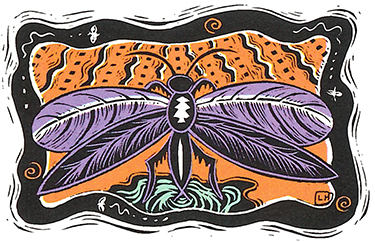Fountain of ‘maturity’ may make an insect old
 Biologists have long known that a “juvenile” hormone keeps insect larvae from turning into their adult, flying stage before their time. In the 1960s, pesticide companies developed a “fountain of youth” treatment based on this juvenile hormone that froze harmful insects—such as mosquitos—in their larval stage.
Biologists have long known that a “juvenile” hormone keeps insect larvae from turning into their adult, flying stage before their time. In the 1960s, pesticide companies developed a “fountain of youth” treatment based on this juvenile hormone that froze harmful insects—such as mosquitos—in their larval stage.
But what about insects who do most of their damage while they are young, such as apple maggots, gypsy moth caterpillars or tobacco hornworms? What farmers need is a way to turn these critters into grown-ups long before their natural time, a kind of “fountain of maturity” treatment.
In February UW Zoology Professor Lynn Riddiford reported a breakthrough. She and her colleagues have been able to clone the juvenile hormone “receptor,” the gateway in the insect’s cell that detects the hormone.
Her description of the receptor’s biology will give the pesticide industry a road map for designing dummy proteins that plug into the cells of larvae, blocking the insects’ juvenile hormone from the receptor site. Once blocked, the larvae will undergo metamorphosis long before they are ready. The weak adults are not expected to survive.
Riddiford’s colleagues are SUNY-Stony Brook Professor Glenn Prestwich and UW Researcher Reddy Palli.